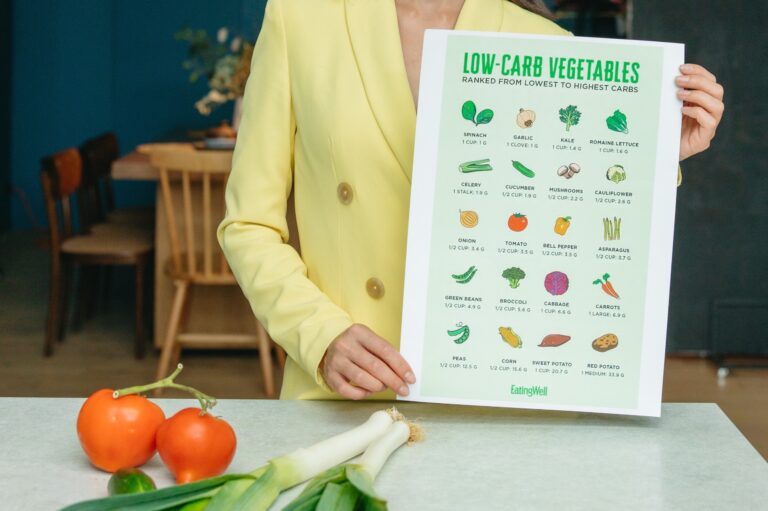
We’ve all seen on TV or read in magazines that we should be cutting down or even cutting out carbohydrates in our meals. There is never ending advice on diets that will drop the weight instantly. How about the Keto diet? That’s the diet that has no carbohydrates at all in our diet. And how about the one where you cut out sugar altogether when you have diabetes? How many times have you been told by someone who doesn’t have diabetes ‘should you be eating that?’
It’s confusing and the trouble is, who do you believe? Social media has us believing the person in the pictures who is slim and gorgeous got that way from a diet. But a diet is just that – a short-term eating program that is not sustainable. When you stop the diet, does the weight you lost come back? Carbohydrates are to blame for obesity so why are they important in our diet? And carbohydrates are important in our diet when we have diabetes so why is that?

Just so you know, diabetes is a hormone problem. And the problem is digesting the food group called carbohydrates.
And by the way, what is a carbohydrate?
Carbohydrates are a type of food group. We have different food groups such as protein and fats for example.
Carbohydrates are foods that when we eat them, they break down into glucose. This is the way that our body uses it as energy. The glucose moves out of our gut (intestines) into our blood stream, where it is taken into our cells (brain, muscles) and used as fuel.
Why does it even matter if we eat carbohydrates?
Carbohydrates are necessary to our body to use as fuel. Our brains need a lot of glucose to work so we all need to eat carbohydrates. If we don’t, our body breaks down fat and muscles to use as energy instead. So, eating carbohydrates every day is important to fuel our body. When you have diabetes, it’s actually not healthy to skip carbohydrates from your meals. Limit them, yes, but skip them altogether, no.
Why are carbohydrates the 'bad guy' in the food groups?
Carbs are not the bad guy all the time. There are some that are really good for us, and these ones contain plant fibre, or are sometimes known as high fibre carbs or low GI foods. This could be brown rice, multigrain bread and All Bran cereal. Foods high in fibre are digested at a slower rate and so our blood sugar levels rise slowly. We feel fuller for longer as well. And that’s good!
By swopping out one type of carbohydrate such as white bread for a higher fibre one, such as multigrain, you are changing how quickly your blood sugar levels rise and fall. Your blood sugar levels then rise slowly and fall slowly improving your diabetes control.

And that’s good!
When you have diabetes, you need to include carbohydrates in your diet every day for energy. In order to minimise your blood glucose levels from ‘spiking’, you need to choose carbs that are low GI (high fibre) and also limit the amount that you consume. The other tip is to have similar amounts of carbohydrates with each meal so your blood glucose levels are more evenly rising and falling. For example, having one meal that contains a large amount of carbohydrates will cause your blood glucose levels to rise much higher than the rest of the day and potentially leave you feeling not so well. For example, this may be a large pasta meal with garlic bread followed by ice-cream.
And here’s the science bit. Research has shown that having blood glucose levels rising high and falling low again (or as I like to call it, looking like a stormy sea) every day has more of an adverse effect on your body. You may get diabetes complications sooner, so the advice is to have your blood glucose levels gently rise and then gently fall in the day (or as I like to call it, the calm sea).
That’s it. There’s actually no diabetes diet that I can offer you. It all comes down to your individual food choices and being aware of what foods are better for you than others. It is recommended that you limit the carbohydrates that make your blood glucose levels spike and if you’re not sure which foods affect your blood glucose levels more than others, test your levels more often especially 1 or 2 hours after your meals. That way you know which foods have a greater effect on your body than others.
There is handy information on carbohydrates on the Diabetes Australia and NDSS website if you wanted to know more. Making an appointment with a Dietitian is really useful for personalised dietary advice that takes into account your lifestyle and food preferences.
So don’t cut out carbohydrates from your food choices and instead, find out more about which carbs are better for you than others. Incorporate small changes that end up being part of your day-to-day life and your diabetes will thank you for it. Remember, small changes can end up making the biggest difference to your diabetes management.
